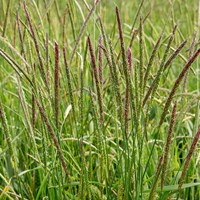GeorgeK
Member
- Location
- Leicestershire
An article in FW this week I could scarcely believe. A grower of Italian ryegrass for seed documenting his major issues with herbicide resistant ryegrass in the following cereal crops. Says it's getting worse than blackgrass due to to its ability to germinate any time of year, being more competitive and with high resistance to grassweed sprays.
I imagine plants are being selected for resistance because those not killed in the cereal crops survive and produce resistant seeds that grow in the next grass seed crop, and so the problem spreads.
And so what's being done about this godawful menace? Well they're harvesting the seed, bagging it up and shipping it across the country to unsuspecting farmers. That's right, the seed in bags we buy likely already has multiple herbicide resistance and will soon become the next blackgrass... only worse. And we're drilling it in our fields.
I always assumed breeders would have been selecting herbicide susceptible plants so this couldn't happen. What an incredible situation, is it just me or is this irresponsible madness?
I imagine plants are being selected for resistance because those not killed in the cereal crops survive and produce resistant seeds that grow in the next grass seed crop, and so the problem spreads.
And so what's being done about this godawful menace? Well they're harvesting the seed, bagging it up and shipping it across the country to unsuspecting farmers. That's right, the seed in bags we buy likely already has multiple herbicide resistance and will soon become the next blackgrass... only worse. And we're drilling it in our fields.
I always assumed breeders would have been selecting herbicide susceptible plants so this couldn't happen. What an incredible situation, is it just me or is this irresponsible madness?







